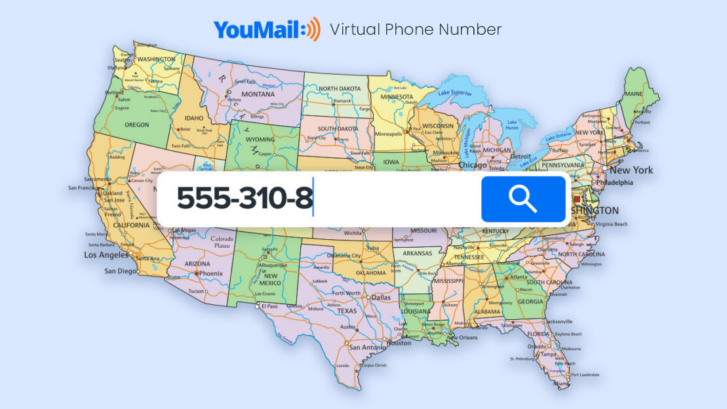Virtual Business Number: Enhancing Communication and Efficiency
Businesses are constantly looking for ways to streamline their operations, enhance communication, and provide better customer service. One solution that has gained significant popularity in recent years is the use of virtual business numbers. These virtual phone numbers offer a range of benefits that can help businesses of all sizes improve their communication strategies. In this article, we will delve into the world of virtual business numbers, exploring what they are, how they work, and the advantages they offer.
What Is a Virtual Business Number?
A virtual business number, often referred to as a virtual phone number, is a telephone number that is not tied to a specific physical phone line. Instead, it operates in the virtual realm, making use of the internet and cloud-based technology to handle calls and messages. These numbers can be accessed and managed through various devices, such as smartphones, laptops, or desktop computers.
How Do Virtual Business Numbers Work?
Virtual business numbers work by utilizing Voice over Internet Protocol (VoIP) technology. When someone calls a virtual number, the call is routed through the internet to a designated device or number. This allows for seamless communication regardless of the caller’s location. VoIP technology ensures high-quality voice calls and can also handle text messages and other forms of communication.
Benefits of Using Virtual Business Numbers
1. Cost-Effective Communication
One of the primary advantages of virtual business numbers is cost savings. Traditional phone systems often come with expensive setup and maintenance costs. Virtual numbers, on the other hand, require minimal hardware and can be set up quickly at a fraction of the cost.
2. Enhanced Accessibility
Virtual numbers provide businesses with the flexibility to connect with customers and clients worldwide. Geographic boundaries are no longer a limitation, making it easier to expand your customer base.
3. Scalability
As your business grows, so can your virtual phone system. Adding new lines or features is a simple process, ensuring that your communication infrastructure can adapt to your changing needs.
4. Security and Privacy
Virtual numbers offer advanced security features, such as call recording and encryption, to protect sensitive information. Additionally, they allow you to keep your personal number private while conducting business.
5. Tracking and Analytics
Virtual number providers often offer analytics tools that allow you to track call volume, customer interactions, and more. This data can be invaluable for making informed business decisions.
Types of Virtual Business Numbers
Local Numbers
Local virtual numbers are associated with a specific geographic area. They are ideal for businesses that want to establish a local presence in different regions.
Toll-Free Numbers
Toll-free virtual numbers, often starting with 800, 888, or 877, allow customers to call your business without incurring any charges. This can encourage more customer inquiries.
Vanity Numbers
Vanity virtual numbers are customized with memorable combinations of digits, making them easy for customers to remember. For example, 1-800-FLOWERS.
Setting Up a Virtual Business Number
Setting up a virtual business number is a straightforward process. Most providers offer user-friendly interfaces where you can choose your number, configure call forwarding, and set up voicemail.
Virtual Business Numbers vs. Traditional Phone Systems
Comparing virtual business numbers to traditional phone systems highlights their cost-effectiveness, flexibility, and scalability. Traditional systems often require significant hardware investments and can be less adaptable to changing business needs.
Enhancing Customer Service with Virtual Numbers
Virtual numbers enable businesses to provide excellent customer service by ensuring that calls are never missed, even during non-business hours. Features like call routing and automated attendants can enhance the customer experience.
Cost Savings and Scalability
The ability to scale your communication infrastructure up or down as needed ensures that you are only paying for the services you require. This scalability can lead to substantial cost savings.
Security and Privacy
With virtual numbers, you can implement security measures like call recording and encryption to protect your business and customer data. Keeping your personal number private also enhances your privacy.
Geographic Flexibility
Virtual numbers allow your business to appear local to customers in different regions, building trust and credibility.
Tracking and Analytics
Access to call analytics helps you gain insights into customer behavior and preferences, enabling data-driven decisions to improve your business operations.
Integrating Virtual Numbers with Your Business
Integrating virtual numbers with other business tools and software, such as CRM systems, can further streamline your operations and enhance customer relationships.
Common Use Cases
Virtual numbers are widely used across various industries, including e-commerce, healthcare, real estate, and customer service centers.
Tips for Choosing the Right Virtual Number Provider
When selecting a virtual number provider, consider factors such as pricing, features, customer support, and reliability. Read reviews and compare options to find the best fit for your business.
Conclusion
In conclusion, virtual business numbers offer businesses a modern and efficient way to communicate with customers and clients. Their cost-effectiveness, scalability, and numerous features make them a valuable addition to any business’s communication toolkit. By embracing virtual numbers, businesses can enhance customer service, improve security, and expand their reach, ultimately contributing to their overall success.
FAQs
- Are virtual business numbers suitable for small businesses?
- Yes, virtual numbers are ideal for small businesses as they offer cost-effective communication solutions with scalability.
- Can I keep my existing phone number when using a virtual business number?
- In many cases, you can port your existing number to a virtual number provider. Check with your chosen provider for details.
- Do virtual numbers require an internet connection to work?
- Yes, virtual numbers rely on the internet and VoIP technology for communication.
- Are there any hidden fees associated with virtual business numbers?
- It’s essential to review the pricing plans of virtual number providers to understand any potential additional fees.
- Can I use a virtual number for international calls?
- Yes, virtual numbers can be used for international calls, making it easier to connect with customers worldwide.
Incorporating virtual business numbers into your communication strategy can revolutionize the way you interact with customers and clients. With their numerous benefits and ease of use, it’s no wonder that businesses of all sizes are making the switch to virtual numbers. So why wait? Get access now and start reaping the rewards of enhanced communication and efficiency.





